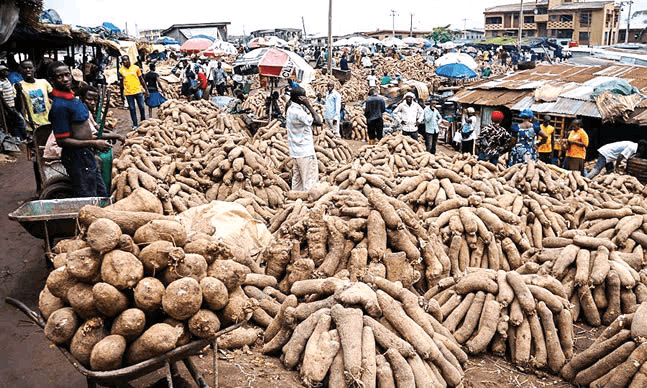From Musa Muhammad Kutama, Calabar
To boost it’s the economic potential of the state to a betterment Agriculture Senator Bassey’s Administration In line with his vision of extracting value from cash crops such as Cocoa, Coffee and Oil Palm, where Cross River has comparative advantage, key players in the Cocoa subsector have committed to exploring measures of repositioning the industry to a more productive and sustainable economy.
The governor made the statement recently in Ikom during a two-day Stakeholders’ consultative meeting organized by the Multi-Stakeholder Committee for Cocoa, Coffee and Oil Palm Strategic Plan development in collaboration with one of its technical partners – TRACE project.
Our correspondent reports that The meeting gathered participants from the downstream and the upstream of the Cocoa value chain, and sought to understand the needs, priorities and challenges of the business to achieve an inclusive and responsive Strategic Plan
In his opening address, the Commissioner for Agriculture and Irrigation Development, Hon Johnson Ebokpo, who was represented by his Permanent Secretary and Secretary of the Multi-Stakeholder Committee, Mr. Ekpe Bassey intimated that the State Government is making concerted efforts to address fundamental issues surrounding the business operations of the Cocoa value chain in the state.
He lamented that despite the high level of Cocoa production in the State, Cross River is not occupying its right position among cocoa-producing states which also robs the farmers of due benefits.
He maintained that the consideration of the ‘People First’ agenda and the strong resolve to change the narrative both at the local and international markets necessitated the inauguration of the Multi-Stakeholder Committee to develop a comprehensive 7 year Cocoa and Coffee Development Plan, design a Strategic Policy Framework for Cocoa and Coffee Development Strategic Plan, as well as mobilize resources for the establishment of six new Cocoa estates in Cross River, among other terms of reference.
The Commissioner called on the Stakeholders to bear their minds with assurance that the Otu-led administration will not renege on its mission of transforming the sector.
Highlighting the objectives of the consultation, the Chairman, Prof. Susan Ohen, represented by the Vice Chairman, Prof. Damian Agom noted that the meeting was to get the Cocoa Stakeholders’ inputs, assess the current state of the value chain, collaboratively set the clear, achievable goals and objectives.
Others included; determining priority areas for intervention such as improving productivity, enhancing quality, expanding market access and promoting sustainable practices as well as proposing specific projects, programs and initiatives to achieve the Strategic goals.
He further presented an update on the committee’s activities emphasizing the ability to deliver on its assignment for the state.
Also speaking, the programme Technical Advisor for the TRACE project, Mrs Juliet Ntui informed that the project aligns with the committee’s mandate given that the main goal of TRACE is to put together a central traceability system in Nigeria to ensure that any Cocoa that leaves the country can be traced to the actual areas of production and the farmers.
She lauded the government for embarking on the journey of agricultural transformation, adding that the Strategic Plan should outline all traceability requirements like social, environmental and gender issues for every farmer to follow.
Shared commitments were also made by goodwill messages from the Cross River State Forestry Commission, Chairman, Rt. Hon. George Oben-Etchi, Chairman, House Committee on Agriculture, Forestry and Natural Resources, Hon Bette Obi, represented by the Secretary, Dr Maurice Olory, State Chairman of Cocoa Farmers Association of Nigeria ( CFAN) Dr Ndep Tiku, National Vice President of Cocoa Association of Nigeria (CAN), Mr Ntino Ntino and the National Secretary of CAN, Mr Goddy Okwu.
After robust presentations by the Finance, Cocoa and Produce Law Review Subcommittees, stakeholders had a breakout session and came up with recommendations which stressed that traceability of cocoa should be done based on the actual owner of the farm; establishment of farmers’ sovereign fund; de-reservation of areas of the forest where cocoa farms are located; as well as dredging of the Calabar seaport by the government to attract investors and promote export of Cocoa and other trade in the State.
They also recommended that the government should regulate the already adulterated agrochemical markets, eliminate illegal checkpoints, multiple taxation, grade Cocoa at source, provision of access roads from the farm gate to the market to reduce post-harvest losses, as well as enhance quality market and security.
The meeting had a good number of Cocoa Farmers, Licensed buying agents, Cocoa Merchants, value addition players, environmentalists and financial institutions in attendance.



